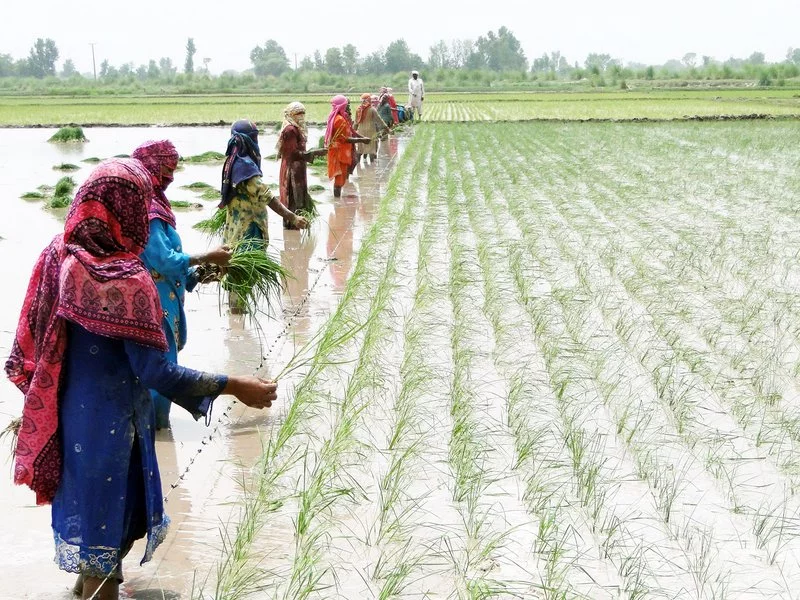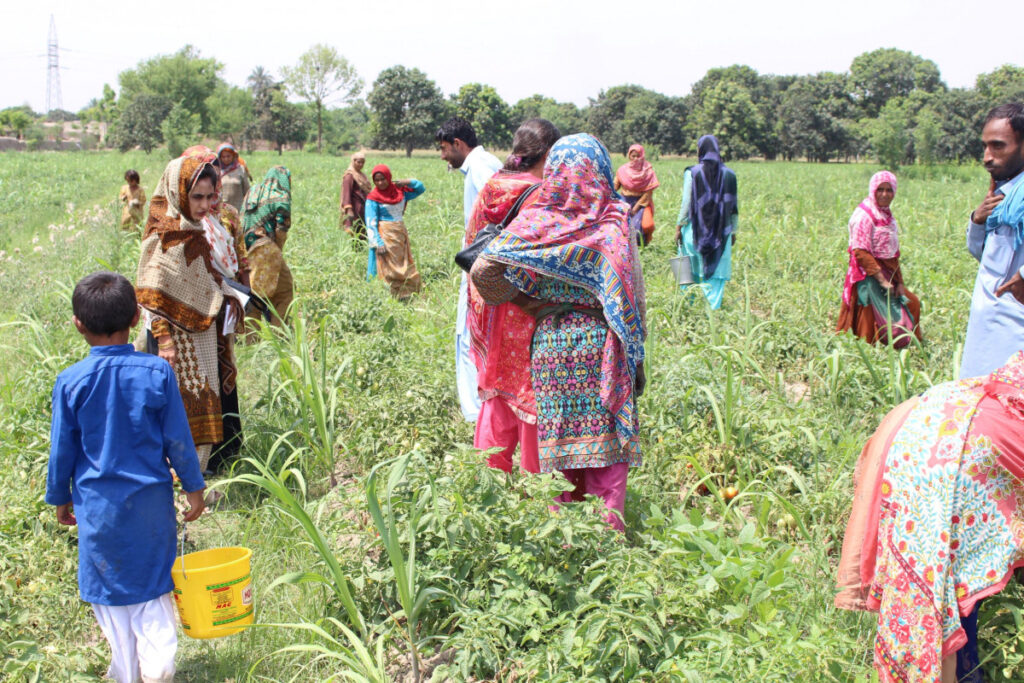
Free Services of HRWS Pakistan to Reduce Climate Change and Empower Women Farmers in Pakistan.
Free services of human Rights welfare society Pakistan to reduce climate change and empower women farmers in Pakistan.The Human Rights Welfare Society Pakistan provides various free services to reduce climate change and empower women farmers in Pakistan. Some of these services include:
- Training and Capacity Building: The society organizes training programs and workshops to educate women farmers about sustainable farming practices, climate change mitigation strategies, and the efficient use of resources. These trainings enhance their knowledge and skills, enabling them to adopt climate-friendly agricultural techniques.
- Access to Renewable Energy: The society facilitates the provision of renewable energy technologies, such as solar panels, to women farmers. This helps them to reduce their dependence on fossil fuels and traditional energy sources while minimizing greenhouse gas emissions.
- Provision of Climate-Resilient Farming Inputs: The society assists women farmers by providing them with climate-resilient seeds, organic fertilizers, and advanced farming technologies. These inputs contribute to increasing agricultural productivity and resilience in the face of climate change.
- Advocacy and Policy Engagement: The society actively advocates for policies and legislation that promote climate change mitigation and women’s empowerment in agriculture. They engage with relevant stakeholders, including government agencies, to raise awareness of the importance of these issues and influence policy decisions.
- Market Access and Value Addition: The society facilitates market linkages for women farmers, helping them access fair prices for their agricultural produce. It also promotes value addition through training on food processing and preservation techniques, enabling women farmers to increase their income and reduce post-harvest losses.

6. Gender Equality and Empowerment: The society focuses on addressing gender disparities in the agricultural sector by actively promoting gender equality and women’s empowerment. They work towards enhancing women’s decision-making power, access to resources, and participation in agricultural value chains.
7. Climate Change Adaptation Strategies: The society helps women farmers develop and implement climate change adaptation strategies suited to their specific needs and challenges. This includes promoting diversification of crops, introducing water-efficient irrigation systems, and encouraging agro-forestry practices.
8. Community-based Education and Awareness: The society conducts awareness campaigns and community-based education programs to ensure that women farmers have access to information and knowledge about climate change, its impacts, and ways to mitigate and adapt to it. These initiatives empower women to take informed decisions regarding their farming practices.
9. Microfinance and Credit Facilities: The society works towards providing women farmers with access to microfinance and credit facilities. This enables them to invest in climate-friendly agricultural technologies, purchase inputs, and expand their farming enterprises, thereby enhancing their resilience and income generation capacity.
10. Networking and Collaborations: The society fosters collaborations and partnerships with other organizations, both at national and international levels, working in the fields of climate change and women’s empowerment in agriculture. This facilitates knowledge sharing, resource mobilization, and the development of sustainable initiatives that can bring about positive impacts on a larger scale.
11. Training and Capacity Building: The society organizes training programs and capacity-building TV workshops specifically tailored for women farmers, equipping them with the necessary skills and knowledge to effectively manage and adapt to climate change. This includes training on sustainable farming practices, climate-smart technologies, and entrepreneurship.
12. Access to Improved Seeds and Inputs: The society promotes women’s access to improved seeds, fertilizers, and other agricultural inputs that are climate-resilient, drought-tolerant, and yield-enhancing. This helps women farmers to improve productivity and adapt to changing climate conditions.
13. Market Linkages and Value Addition: The society assists women farmers in establishing market linkages and accessing fair trade opportunities. Additionally, value addition activities such as processing and packaging of agricultural products are encouraged, enabling women to earn higher incomes and strengthen their economic resilience.

14. Gender-Responsive Policy Advocacy: The society advocates for gender-responsive policies and programs at local, national, and international levels. This includes lobbying for gender-inclusive agricultural policies, climate change adaptation and mitigation strategies, and access to resources, technologies, and finance for women farmers.
15. Weather Information and Early Warning Systems: The society supports the establishment and dissemination of weather information and early warning systems in agricultural communities. This helps women farmers to make informed decisions regarding planting, irrigation, and crop protection, reducing their vulnerability to climate-related risks.
16. Sustainable Land and Water Management: The society promotes sustainable land and water management practices, such as contour farming, terracing, and soil conservation techniques. These practices help to conserve soil moisture, reduce erosion, and improve water availability for agriculture, benefiting women farmers who heavily rely on small-scale farming.
17. Gender-Responsive Technology Development: The society supports the development and dissemination of gender-responsive agricultural technologies. This involves ensuring that technologies are affordable, appropriate, and user-friendly for women, taking into account their specific needs and roles in farming.
18. Strengthening Women’s Farmers’ Organizations: The society assists in strengthening women’s farmers’ organizations, providing them with capacity-building support, leadership training, and networking opportunities. This enables women to have a collective voice, advocate for their rights, and access resources and opportunities more effectively.
19. Climate-Smart Livestock Management: The society promotes climate-smart livestock management practices that enhance the resilience of women-led livestock farming enterprises. This includes improved animal housing, fodder conservation, and disease management strategies, minimizing the impact of climate change on livestock productivity.
20. Research and Innovation: The society invests in research and innovation related to climate change adaptation in agriculture. This includes studying and documenting best practices, developing new technologies, and generating evidence-based knowledge on gender-responsive climate change adaptation strategies for women farmers.
All Categories
- Agricultural Methods
- Agriculture and Women Small Farmers Rights Awareness
- Climate Change
- Disable and Human Rights
- Disable Jobs
- Donation
- Education
- Health Issues
- Organic Foods
- Organic Vegetables
- Orphans Children
- Plastic production and disposal
- Services
- Sinking in Scarcity
- Success Stories
- Uncategorized
- Waste Management
- Women Rights
- Youth Empowerment




